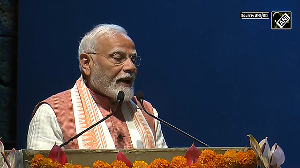Arbour expressed concerns over the fairness and impartiality of the trial that led to the death sentences imposed on Saddam's half brother and former intelligence chief Barzan Ibrahim al-Hassan and former chief judge Awad Hamad al-Bandar.
The two men had been found guilty of crimes against the civilian population of the town of Dujail in 1982.
"The imposition of the death penalty after a trial and appeal proceedings that do not respect the principles of due process amounts to a violation of the right to life," she said in a statement on Monday.
Arbour said that while bringing those people responsible for serious human rights violations to justice is crucial for effective national reconciliation, the fight against impunity must be based on respect for international human rights standards and the rule of law.
Opposing capital punishment under all circumstances, she said, "In this particular case, not only is the penalty irremediable, it may also make it more difficult to have a complete judicial accounting of other, equally horrendous, crimes committed in Iraq."
Earlier in January, citing concerns about the impartiality of the trial, Arbour issued a direct appeal to Iraqi President Jalal Talabani that the two co-defendants should not be executed. That call was endorsed at the time by Secretary-General Ban Ki-moon's spokesperson, who on Monday joined Arbour in voicing regret at the executions.






 © 2025
© 2025